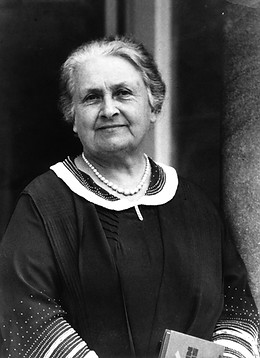What is Montessori?

"Play is the work of a child"
Maria Montessori
Montessori is an educational philosophy and method developed by Dr. Maria Montessori, an Italian physician and educator, in the early 1900s. It’s based on the belief that children learn best when they are given freedom within a structured, prepared environment that supports their natural curiosity and development.
Maria Montessori
Core Principles of Montessori
Child-Centered Learning – Lessons are individualized, allowing children to work at their own pace.
Hands-On Learning – Specially designed Montessori materials encourage children to learn through exploration and movement.
Mixed-Age Classrooms – Typically grouped in 3-year spans (e.g., 3–6, 6–9), allowing younger children to learn from older peers and older children to reinforce knowledge by helping younger ones.
Prepared Environment – The classroom is carefully organized with accessible materials to promote independence and concentration.
Freedom Within Limits – Children choose activities but follow classroom rules and routines.
Intrinsic Motivation – No grades or rewards; children develop a natural love for learning.


Benefits of Montessori
Montessori education encourages:
-
Independence and self-discipline
-
Strong problem-solving and critical-thinking skills,
-
Social and emotional skills through collaborative learning
-
Child’s unique developmental pace.
